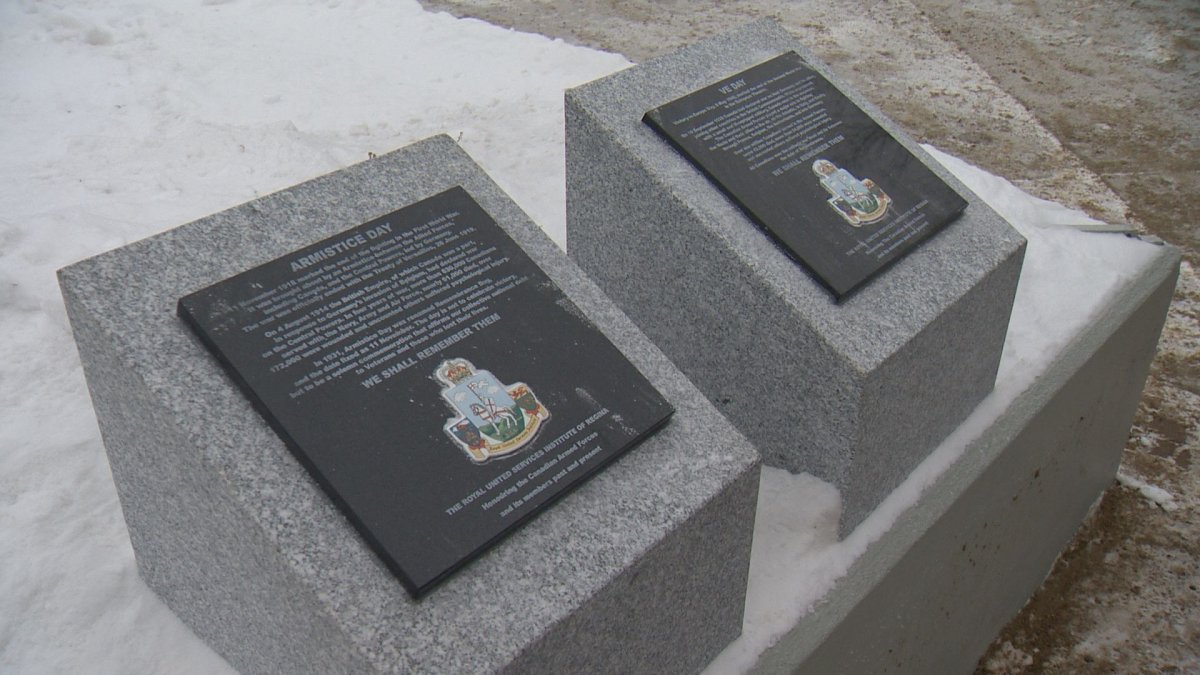As time goes on, Regina’s Royal United Services Institute is hopeful that people will continue remembering their veterans, but worries the reasons why may be lost.

That’s why the not-for-profit launched its pedestal project, installing two plaques — one detailing the history of Armistice Day and the other, the history of VE (Victory in Europe) Day — near the cenotaph in Victoria Park in time for Remembrance Day Wednesday.
“We’ve already lost all of our First World War veterans and it’s not going to be that many more years that we’ll start losing the last of the Second World War and the Korean war veterans,” Maj. (Ret’d) Brad Hrycyna, president of the Royal United Services Institute board, told Global News. “Their story and their memory needs to be kept alive.”
The pedestals, made of granite, are designed to endure the test of time, Hrycyna said and will tell the stories related to some of the battles in which the Canadian military has engaged since Confederation.
Founded in 1919 by 80 military members who returned home to Regina after fighting in the First World War, the Royal United Services Institute has channelled its efforts into commemoration initiatives in recent years.

Get breaking National news
Notably, the group has established a Saskatchewan Wall of Honour in the provincial legislative building, focusing on the 15 recipients of the country’s highest award for valour, the Victoria Cross, who have ties to Saskatchewan.
There, each officer is honoured in an individual shadow box containing their picture, accompanied by a write-up of their contribution and replicas of their medals.
Additionally, the group has been visiting places across the province that were significant to the recipients and holding small ceremonies for them.

The Royal United Services Institute started its pedestal project by marking the ends of the First and Second World Wars. As the plaques explain, Armistice Day, Nov. 11, 1918, is when the fighting of the First World War ended in Europe. VE Day, May 8, 1945, is recognized as when the hostilities of the Second World War were over on that continent.
The flower beds to the southwest and southeast of the cenotaph have room for 10 more plaques.
While the Royal United Services Institute has other ideas related to the country’s military history, it doesn’t have the money right now to move forward.
Each one costs more than $3,600.
The group is fundraising to finish the remaining 10.








Comments